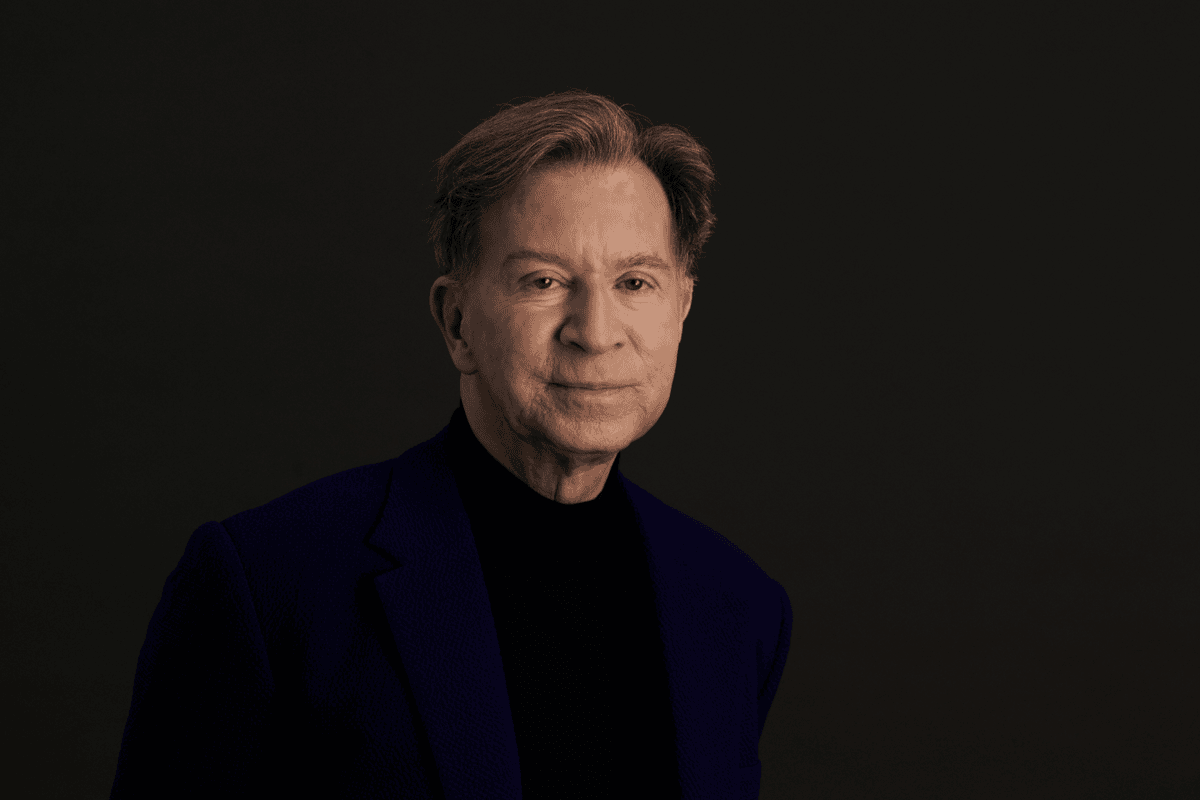By Ali Lyon
Copyright cityam

John Studzinski may be one of the City’s most senior bankers, but he is arguably best known for his exploits beyond the Square Mile and Wall Street; namely in the space of philanthropy. Ali Lyon talks to him about his aims to reshape the way people think about ‘giving’, and why he doesn’t like the word philanthropist.
Despite all evidence to the contrary, John Studzinski is not – by his own account – a philanthropist.
The life of the vice chair of fixed income juggernaut Pimco may have oozed all the hallmarks of an archetypal big name benefactor. There’s his feted career in investment banking – one which has bestowed on him the means to donate handsome sums to good causes around the world. There is also his position as an adviser to – and founder of – a coterie of household name charities, many of which play an outsized role in Britain’s third sector. And impossible to ignore is the devout adherence to his Catholic faith that has seen him strike up close friendships with multiple Cardinals, and even several Popes.
But the term ‘philanthropist’ does not sit easily with the British-American investment banker, who, as well as his feted charitable pursuits, has notched up a picture perfect CV that includes senior stints at Morgan Stanley, Blackstone and HSBC.
“I don’t like that word,” says Studzinski, who not only famously gives half of his salary (estimated to be well in the millions) to charity but also spends his Sundays walking the streets volunteering for homeless charities. “I’m often referred to as a philanthropist – or a Catholic philanthropist. But I’d rather be called someone whose life is focused on giving, rather than a philanthropist.”
The City luminary is speaking to City AM shortly before the publication of his debut book, which seeks to provide its readers with a “philosophical framework” for how best to do good. And reservations about the ‘P-word’ – mostly implicit – run through the chapters of A Talent for Giving like a stick of rock. Over the course of 200 pages, he mostly reaches for notions of “common good”, or being a “benefit to the world”, or – above all – “giving” in lieu of any references to the anachronistic word.
A new model of philantrhopy
This – he says – was fully intentional. A Talent for Giving is part memoir, part meditation, part handbook which aims to encourage people to devote more of their lives to venerable causes – and convince them that despite the author’s own considerable means, the pursuit is not all about donating handsome sums to charity.
“I’d like to get people to rethink philanthropy as more about nurturing the common good, not about large amounts of money or largesse or galas,” says Studzinski, who – sitting in one of Pimco’s pristine boardrooms dressed in an immaculately cut suit – looks and sounds as if he’s been to a few big charity bashes in his time.
“I work with a lot of young artists between the ages of 15 and 25, and when you ask young artists, what is philanthropy, sometimes their eyes glaze over and they think it’s a a 19th century word that is outdated and has nothing to do with them.”
Instead, Studzinski wants readers – many of whom he hopes will be members of the hard-to-reach generation Z – to channel their philanthropic efforts into areas for which they have a talent or passion.
A 45-year career in banking, for example, has taught the book’s author “a lot about networks, markets, management [and] talent”. An advertising executive, on the other hand, would be best put to use assisting with a charity or cause’s communications and marketing.
That decision to broaden ‘giving’ away from one-off donations or the preserve of society’s most well-healed comes at a pivotal time for those in the third sector.
A string of recent studies have found traditional charitable donations from both businesses and individuals to have fallen drastically since the pandemic. The chair of the Charity Commission recently warned that the UK’s most moneyed residents “were not covering themselves with glory in philanthropic terms”, after its study found donations from the top one per cent had fallen in the last decade. And a similar paper from the Charities Aid Foundation (CAF) revealed corporate donations FTSE 100 companies had fallen in real terms over the past two years.
Studzinski puts these falls down to the “enormous volatility and uncertainty right now” on the economic and geopolitical fronts; a trend amplified by “people’s own individual values being re-calibrated in terms of how they want to give their time”.
“I think you’re going to see more people giving perhaps more time and less money,” he adds.
Do those economic and geopolitical fears extend to the world’s growing population of billionaires and multibillionaires?
John Caudwell – the founder of Phones4u and another one of the UK’s high-profile philanthropists – recently bemoaned the paucity of benevolence among some of his fellow 10-figure friends.
Jeff Bezos and Elon Musk give billionaires a bad name
He told City AM in July that the likes of Jeff Bezos and Elon Musk were giving their ilk a bad name with their overt displays of wealth and minimal charitable exploits, adding that the Amazon founder’s multimillion-pound wedding was “the crystallisation of the super rich breeding resentment”.
Studzinski, however, reserves judgement. He ducks questions about individuals like Musk and Bezos. And when asked about other famous methods of philanthropy – namely the contentious Sam Bankman-Fried-backed ‘effective altruism’ movement – he says he “doesn’t want to get drawn into talking about other philanthropists”.
He even suggests that job creation could – in its own way – be viewed as an form of giving. “I’ve said to very wealthy people, ‘Maybe you could give more of your time or your talent or your money,” he says. “And sometimes, and I get a very stern reaction, and people say, ‘I create a lot of employment… and that’s my way of contributing,’ which is almost like a medieval or a feudal approach. And I’m not saying that’s wrong.”
He is less equivocal, however, when it comes to some of his frustrations with – and judgements of – the charitable sector. There are, he says, too many charities in Britain doing similar things, and they should join forces more strategically. Food banks are a sorry “band aid” that only solve a short-term problem. And some rough sleepers think it’s “chic” to be homeless.
Those assessments would feel harsh – callous, even – coming from anyone else. And indeed when he used an opinion piece in The Economist to make his point about the UK’s third sector needing a period of consolidation, he “got lambasted” in next week’s letters to the editor.
But if anyone has earned the right to say things from which others might shy away, it is Studzinksi. Along with the then Archbishop of Westminster, Cardinal Hume, he founded The Passage, one of London’s largest homeless shelters, and Business Action on Homelessness. He established the Genesis Foundation, a charity that helps nurture the careers of young artists and creatives. And he is vice chair emeritus of Human Rights Watch.
All of which, he confesses, he does just as much for himself and his own gratification, as much as the benefit it brings society. “You get so much more out of volunteering than you actually give,” he says.
“And there’s nothing wrong with that. There’s nothing wrong with good giving being a win, win, win.”
Just don’t call him a philanthropist.



